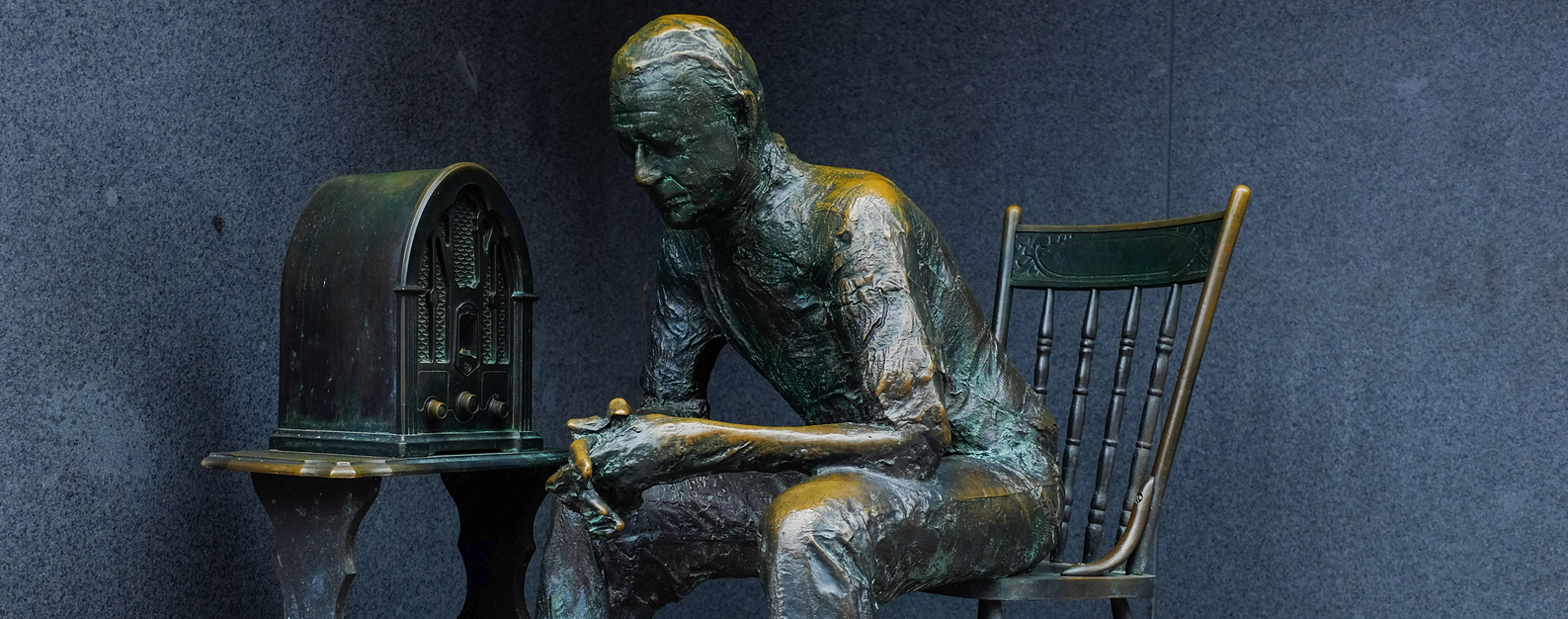Rule-Breaking: Looking at the Psychology of Finance through a Psychoanalytic Lens
Third in a Series
Introduction
Experienced investors believe in the importance of rules. Rules that specify entry and exit triggers, acceptable volatility ranges, trade size parameters and so on. They organize their rules into trading plans and systems, the uniqueness of which gives them their edge. But except for someone who surrenders control entirely to a computer algorithm, there comes a moment when even the most experienced investor breaks one of his own rules.
This post uses a psychoanalytic lens to explain why it is inevitable that you will break your own rules and how to decrease the frequency and minimize damage.
The Inevitability of Breaking Rules
Rule breaking is often attributed to lack of consistency, discipline and/or confidence. (for example Crist and Dennis).
This diagnosis is subtly moralistic. If you break rules, you obviously lack discipline or confidence—the implication is you’re “bad” or “weak”. Besides being unhelpful, this viewpoint also ignores human nature and the inevitable power of emotion.
So why do people, including those who are quite confident and disciplined, regularly and inevitably break their own rules? And this despite the pain that usually follows?
Investment guru Howard Marks is closer to the cause with his focus on emotion:
“Most people are driven by greed, fear, envy and other emotions that render objectivity impossible and open the door for significant mistakes” (The Most Important Thing Illuminated).
Reasons for Rule Breaking[i]
Temperament
Temperament is your innate way of behaving and reacting, a stable way of perceiving and responding to the world. Temperament and personal history effect decision making (and therefore rule breaking). The variations are endless, but here are two common patterns:
- Stimulus-seeking. Following rules is boring. You wouldn’t be in this business if you liked doing things in a predictable, rule-bound way. Rule breaking can come from a drive to pursue excitement in the form of daring bets. And inhibiting yourself can be irksome to the point of fomenting rebellion.
- Market observers describe states of cyclical euphoria and despondency. If your temperament includes a component of what psychiatrists call “cyclothymia” —mood variability that alternates between excited, energetic, overly optimistic highs and depleted, pessimistic lows– it’s likely that you will be extra-sensitive to the market’s mood swings which may resonate with and amplify your own. In an elevated mood state, people are universally more impulsive and risk taking. In a down cycle, people are pessimistic and slow to make decisions. These overall affective states can be powerful and could easily tip you into the temptation to break one of your rules.
Group Psychology, aka Jumping on the Bandwagon
This danger has been widely noted[ii] yet humans being humans, people keep jumping. This is not surprising, since we have evolved to be social creatures. Our DNA whispers to most of us “stick with the crowd if you want to survive”. The feelings and thinking of the group exert a magnetic, biologically based pull to match your thoughts and emotions with the herd. Especially if your rules dictate a position that is contrary to the larger group’s prevailing attitude and behavior, you’re likely to experience increasing internal tension. No one enjoys feeling left out of a party, or out on a limb when everyone else is retreating. You start to wonder, maybe everyone knows something you don’t know. The temptation to break your rules grows as your own positions depart from the herd’s.
What about contrarians? They are certainly less susceptible –though not entirely immune—to the pressure to join the herd. However, if you are a hard-boiled contrarian you can even rebel against rules you’ve placed voluntarily on your own trading. I’m a contrarian myself so I’m sympathetic to this position. If someone tells me I can’t do something I feel a nearly irresistible urge to do it. If I tell myself I can’t do something, I just as strongly want to say, “oh yeah, just watch me.”
Emotional forces
Emotional forces are more fluid and tend to occur in reaction to specific experiences. While cognitive biases have garnered most of the attention in discussions of the psychology of investing, a smart handful of people have warned about the power of emotion (Once again, see Marks, Buffet, Tuckett[ii] ) . Relevant emotional forces include those that are ubiquitous—everyone experiences them at some time or another–and those that are idiosyncratic-part of your unique makeup and perception/reaction system.
Ubiquitous emotions
Investment guru Howard Marks identifies a quiver of emotions and emotional forces that affect every investor: greed, fear, tendency to conform to the view of the herd, envy and “ego”. I would add the wish to avoid shame and humiliation. Any powerful emotion can lead you to rationalize departure from your system and rules. Especially if you are unaware of them, emotions can always override rational thought and considered discipline.
Idiosyncratic emotions
Getting acquainted with emotional reaction patterns unique to you requires some practice in self-reflection. Each of us has triggers for emotional reactions that are idiosyncratic and sometimes counterintuitive. For one person, boredom becomes a nearly intolerable itch to act and make something happen. Another is hypersensitive to competition with sibling substitutes. Still another person reacts paradoxically to success.
“Disavowal”
This is a sneaky and pernicious psychological defense mechanism that everyone is vulnerable to and all investors should know about. It’s complicated, so I explain it in depth in a separate post. Briefly, it’s a mental disconnect–the strange capacity of the mind to know something very clearly but act in a way that defies the implications of that knowledge.
What can you do?
Howard Marks: “What, in the end, are investors to do about these psychological urges that push them toward doing foolish things…Learn to see them for what they are…Be realistic—you’re not immune to these forces” [iv].
His prescription? “Although we will always feel them [emotions], we must not succumb; rather, we must recognize them for what they are and stand against them. Reason must overcome emotion. [emphasis added]”
Marks’ prescription reminds me of Bob Newhart’s famous line as a TV psychotherapist faced with a patient’s irrational fear: “Stop it”.
If only we could stop ourselves from being driven by emotion. The Stoics tried it centuries ago, and I suppose a few people can pull it off. But for the clear majority of humans it’s important to understand you are beset by irrational emotional forces AND you can’t just will yourself stoically to resist them.
Acceptance and Humility
As Marks correctly insists, know you are as susceptible to these forces as the next person.
Practice Self Awareness
You need to learn how the forces of temperament and emotions –both ubiquitous and idiosyncratic– apply to you personally.The key operation in gaining self-awareness is looking at sequences. Investors are used to doing this in analyzing the market.
You start with a critical event—you broke a rule, made a mistake– and work backwards. What mental state were you in before? What emotions can you identify that preceded your action? And what came before that spike in emotion?
If you do this after-action analysis for every instance of rule-breaking, you’ll start to see typical patterns that will clue you into your personal, unique tilts, triggers and vulnerabilities. Take a look at my blog post on “Why professional investors need to know about the concept of psychological regression” which alerts you to some predictable situations that make rational behavior less accessible. Once you know when you are more susceptible to breaking your investing rules, you can set up extra stop-gaps and alerts to try to get you to think before acting when you’re in a similar frame of mind in the future.
Make Two New Rules
# 1 WAIT. Hopefully, you now believe there will be times you want to depart from your system. Try to put a wait time in place. Even a 30-minute pause can give you a chance to reconsider your impulse and remember why you have a system in the first place.
#2 TALK TO A DESIGNATED HUMAN BEING BEFORE YOU BREAK YOUR RULES. Choose someone to be your external braking system. The rule is you must get in touch with them before you break a rule or deviate from your system. If you can’t reach them, you can’t make the trade. You’re not asking for their permission; you’re just telling them you’re going to break your own rule and you’re willing to listen to their reaction.
**
What’s to stop you from this breaking these rules? Well, you could do that too. Then it’s time to ask yourself why you might be sabotaging your own success. Meanwhile, I also suggest a goal of diminishing the frequency and impact of rule breaking, rather than eliminating it entirely. Your best defense is to know yourself in as much depth as possible and be realistic about and alert to the ubiquity and power of emotional forces.
[i] You might notice I’m not including cognitive biases, which are well known in the industry, as one of the causes of rule breaking. Disciplined following of a set of rules ought, theoretically at least, to eliminate the effect of cognitive biases such as loss aversion, confirmation bias, disposition effect etc. So, departures from rules can’t be explained by the usual concepts from behavioral finance.
[ii] See, for example, Howard Marks, The Most Important Thing Illuminated, David Tuckett, Minding the Markets, and Warren Buffett, The Essays of Warren Buffett
[iv] Howard Marks, The Most Important Thing Illuminated
###
Copyright: Invantage Advising
August 2017




 Once a company has been tagged unempathic, it’s a hard reputation to shed. As of this writing, Uber’s very public search for a new CEO smacks of desperation. Top candidate Meg Whitman seems to have notified the Uber Board of her disinterest via Twitter, another embarrassing PR moment.
Once a company has been tagged unempathic, it’s a hard reputation to shed. As of this writing, Uber’s very public search for a new CEO smacks of desperation. Top candidate Meg Whitman seems to have notified the Uber Board of her disinterest via Twitter, another embarrassing PR moment.
